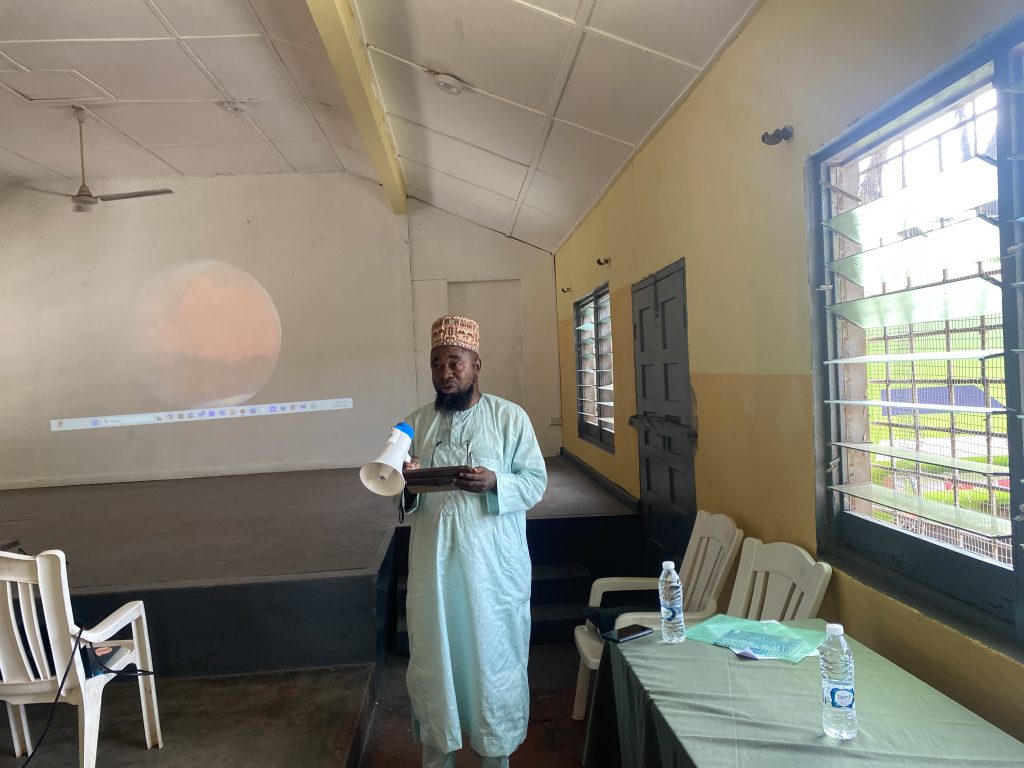By Eric Appah Marfo
Accra, Nov.26, GNA — The Right Reverend Samuel Osabutey, Chairman of the Greater Accra Regional Peace Council, has urged individuals, communities, and political groups to promote mutual respect, trust, and understanding ahead of the 2024 elections.
“In a world where conflicts, wars, misunderstandings and division often dominate headlines, there is a need for the collective hope and effort of individuals, communities and political groups to build lasting peace based on mutual respect, trust and understanding,” he said.
In a speech delivered on his behalf at a sensitization programme on Preventing Violent Extremism in Accra, Right Rev. Osabutey stressed the need for proactive measures to address potential threats before, during, and after the 2024 General Election.
The event, organized by the Greater Accra Regional Peace Council, brought together representatives from political parties, opinion leaders, vulnerable groups, and other stakeholders to discuss ways to ensure peaceful elections.
Right Rev. Osabutey described the event as timely, given its focus on raising awareness about violent extremism and identifying early warning signs of radicalization in communities.
He acknowledged Ghana’s reputation as a stable democracy, having held eight credible elections since 1992, but cautioned against complacency.
Right Rev. Osabutey noted instances of electoral violence and property destruction in previous elections, stressing the importance of vigilance and continued efforts to prevent such incidents.
He noted that terrorism and violent extremism remained global threats, with West Africa experiencing a sharp rise in militant activities, referring to the 2022 Global Terrorism Index, which states that almost half of all global terrorism deaths occurred in sub-Saharan Africa, with militant groups increasingly targeting the Sahel region.
“Ghana remains the only country among its immediate neighbors—Ivory Coast, Burkina Faso, and Togo—yet to experience a terrorist attack, but we must not be complacent,” he cautioned.

Right Rev. Osabutey attributed threats to peace in Ghana to issues like bad governance, unemployment, politically sponsored vigilantism, and weak security structures, and urged that the security services must be equipped to address these challenges effectively.
In addressing the role of Ghanaian youth in the nation’s peace-building efforts, Right Rev Osabutey noted that while the youth represent the future of the country, their energy, if misdirected, could threaten national stability.
He expressed concern about how some politicians exploit the enthusiasm and eagerness of young people to engage in decision-making, often for their own political gain, which could lead to social unrest.
Right Rev. Osabutey urged the youth to refrain from such unpatriotic acts and prioritize the national interest over personal ambitions, stressing that their contributions should be geared toward building a peaceful and prosperous Ghana.
He proposed several solutions, including community engagement, youth empowerment, and the involvement of women in preventing violent extremism
Right Rev. Osabutey highlighted the role of education, dialogue, and fostering strong community values as critical in countering radicalisation.
He expressed gratitude to participants for their commitment to Ghana’s peace architecture.
“Let us move forward with the spirit of dialogue, cooperation, and hope,” he said, affirming his confidence in Ghana’s ability to conduct peaceful elections through collaborative efforts.
GNA